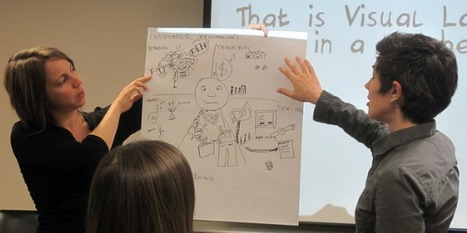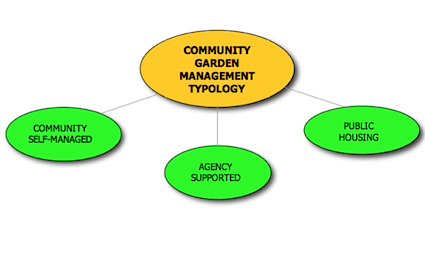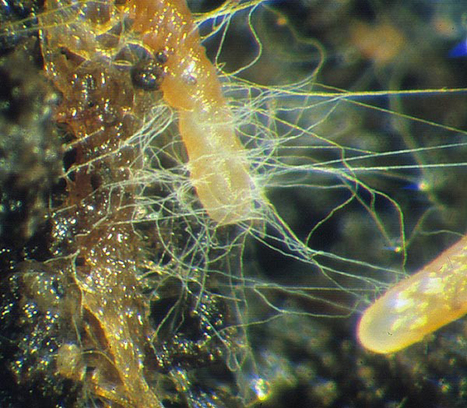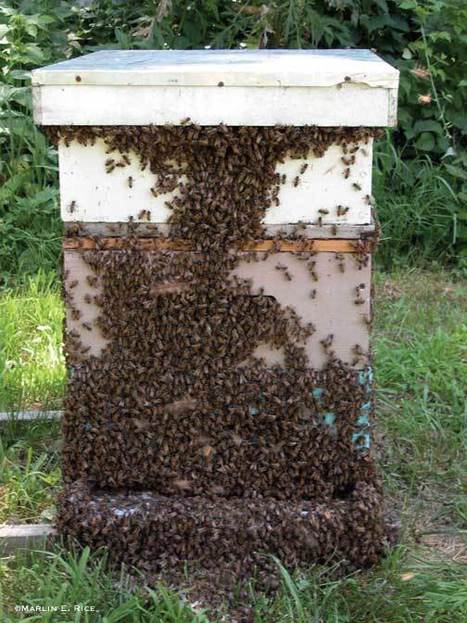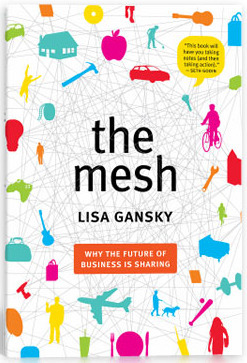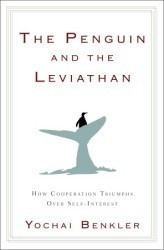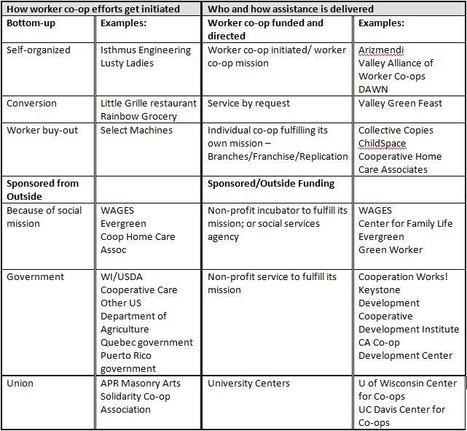 Your new post is loading...
 Your new post is loading...
"As a nonprofit, or as a microvolunteering platform like Sparked, BrightWorks, and HelpfromHome, what do you want from microvolunteers? Genius, a big heart, experience? Well, according to two seperate studies from the MIT Center for Collective Intelligence, when it comes to problem solving within teams of 2-5 members, the determining factor of a group’s success is not IQ, expereince, or any other individual trait. Instead, the ace in the deck is a group’s overall emotional/social sensitivity. ( To test yourself for this particular trait, try this online test.)"
"this thesis contributes to a systematic research account of the Australian community gardening movement by considering community gardening as a site of collective social action."
"Society would collapse if it weren’t for the uniquely human impulse to cooperate and collaborate. So why, asks Mary Midgley, do we persist in believing that competition is the only way forward? The term Darwinism has, in recent times, come to suggest that savage, unbridled competition is the ruling principle of life in nature and must therefore rule in human society, too. Darwin’s views have, as neurobiology professor Steven Rose remarks, been seen as “justifying imperialism, racism, capitalism and patriarchy”. Today, he adds, “journalists refer to boardroom struggles and takeover battles for companies as Darwinian”. All this is actually the opposite of what Darwin wrote when he discussed human and animal societies in The Descent of Man. There, he traced the origins of sociability in animals and pointed out how many kinds of creature show a direct concern for one another. He showed how, as we go up the evolutionary scale and the creatures’ lives become more complex, mutual concern increases and cooperation becomes as noticeable as competition. In humans, the development of intelligence has deepened these social tendencies, making us more aware of one another’s feelings than are most other species. This has also made us notice conflicts between our various motivations towards others – conflicts that distress us so much that we are constantly inventing ethical systems to try to sort them out. That human need for morality is, Darwin said, a central characteristic of the species."
This might strike some as counterintuitive, that Twitter, that channel for broadcasting narcissistic impulses, for branding and feeling good about yourself, might be the key to a global surge in kindness. In fact, Twitter creates a strange chemistry between the seemingly immiscible elements of self-centeredness and altruism. It turns out that people want to get noticed and they also want to do the right thing and Twitter uses the former to fuel the latter. And it scales. For the first time in history, we can do a lot of good, very fast, at a low cost. Here are the five characteristics of Twitter that will make the act of good scalable in unprecedented ways:
The Architecture Of Cooperation The world of business is being re-contoured by the new realities, like ubiquitous connectivity, genius phones, Air/iPad, and the rethinking of ‘offices’. “ Alison...
We would also assume that team members place a high value on cooperation and collaboration. In fact, we often assume those people who willingly follow the team leader are more likely to be cooperative than people working alone. Not so according to recent research by psychologist Piers Fleming and economist Daniel Zizzo, of the Centre for Behavioral and Experimental Social Science at the University of East Anglia (UEA) who published their research in the journal Personality and Individual Differences. Piers and Zizzo contend that people who don't conform are most likely to work together for the great good, whereas people who conform to social norms may be actually less cooperative. The researchers argue their research has significant implications for teamwork in the workplace.
Mutualism is quite an alien concept to us humans. In evolutionary terms it is not a good-for-group idea. Nor is it a "scratch my back and I'll scratch yours" arrangement (I will discuss this in the next post). Surprisingly, it is also completely selfish. Mutualism is any process or behaviour where both parties make gains which immediately outweigh the costs. Sometimes this is because the costs are virtually nothing. I am struggling to think of more than one example of mutualism in human society, but it is in fact so common it is hard to see it in this light. Trade in humans is nearly always mutualistic. If it is not mutualistic we think of it as either a con or charity, depending on who benefits. So, how is trade mutualistic?
This is the first instalment in what will hopefully become a series of blogs (six or so) about the evolution of cooperation. I mentioned before that science is made more interesting by paradoxes. Cooperation is the ultimate paradox of evolution. How does "survival of the fittest" end up with people helping each other? And we do see cooperation in nature. Below are two examples. The first is a moray eel allowing a cleaner fish to eat the debris from its mouth. In the second picture are the extremely cooperative bees. A worker bee will sacrifice its life for the hive, and nearly all worker bees sacrifice all opportunities for reproduction for the good of the hive.
Howard Rheingold's delicious bookmarks tagged "cooperation"
|
"The practice of involving stakeholders in decision-making, problem solving and idea creating (think exhibitor advisory committees) is not particularly new to event organizers. Moving it online, refining the process, opening it up to more participants and releasing some control to the “crowd” is fairly innovative. Consider some of the possibilities."
"One of the great intellectual battles of modern times is between evolution and religion. Until now, they have been considered completely irreconcilable theories of origin and existence. David Sloan Wilson's Darwin's Cathedral takes the radical step of joining the two, in the process proposing an evolutionary theory of religion that shakes both evolutionary biology and social theory at their foundations.The key, argues Wilson, is to think of society as an organism, an old idea that has received new life based on recent developments in evolutionary biology. If society is an organism, can we then think of morality and religion as biologically and culturally evolved adaptations that enable human groups to function as single units rather than mere collections of individuals? Wilson brings a variety of evidence to bear on this question, from both the biological and social sciences. From Calvinism in sixteenth-century Geneva to Balinese water temples, from hunter-gatherer societies to urban America, Wilson demonstrates how religions have enabled people to achieve by collective action what they never could do alone."
Why sharing is the inevitable next stage of the information revolution -- and how it's going to change everything from entertainment to Walmart.
"What do Wikipedia, Zip Car’s business model, Barack Obama's presidential campaign, and a small group of lobster fishermen have in common? They all show the power and promise of human cooperation in transforming our businesses, our government, and our society at large. Because today, when the costs of collaborating are lower than ever before, there are no limits to what we can achieve by working together."
The GEO Collective recognizes a great deal of untapped potential for collaboration and solidarity between organizations using different models to develop worker co-ops. Not only has interest in the development of worker cooperatives increased over the past couple of years in particular, but so has discussion about what are the best models to use and for whom. We hope to contribute to this dialogue by describing (and categorizing) some of the major models in use, and briefly discussing their strengths and weaknesses.
A collection of resources, assembled by Howard Rheingold and Institute for the Future, about the interdisciplinary study of cooperation: be sure to check out Research Summaries and Resources
Normally I wouldn't bother writing about group selection because as an idea it is dead and gone as far as I, and most evolutionary biologists are concerned. However, I started reading this blog about group selection. I thought I would write about group selection for a few reasons. Firstly, it's on my mind at the moment so hopefully the post will be quite good. Secondly, the link provides a good "other side of the story", so hopefully a couple of readers might immerse themselves in the debate. Finally, many members of the public might intuitively see group selection as plausible. This is not something to be ashamed of. A certain Charles Darwin thought it was the best explanation for some social behaviour. Do a biology degree however, and group selection is blasphemy. Because of this it is easy for biologists to lose sight of what an intuitive idea it is.
The ecology of symbiosis provides a useful framework for examining human associations and the ways in which resources, needs, and environments influence associations. Specifically, symbiosis is a useful lens through which group learning can be viewed in order to understand how the environment, individuals, and resources affect a group’s success or failure. Because learning takes place within an environment where learners employ resource sharing in much the same way and for reasons similar to biological symbiosis, it is my hope that a literature review of symbiosis and specifically of three kinds of symbiotic communities will provide insights into how environment, resources, and associations influence a learning community.
The study, published in the Proceedings of the National Academy of Sciences, shows generosity emerges naturally from the evolution of cooperation. "Believing that you will never meet this individual again, you might choose to benefit yourself at his expense -- only to find out later that the relationship could have been open-ended," the researchers say. "If you make this error, you lose out on all the benefits you might have had from a long-term, perhaps lifelong, cooperative relationship."
|
 Your new post is loading...
Your new post is loading...
 Your new post is loading...
Your new post is loading...




